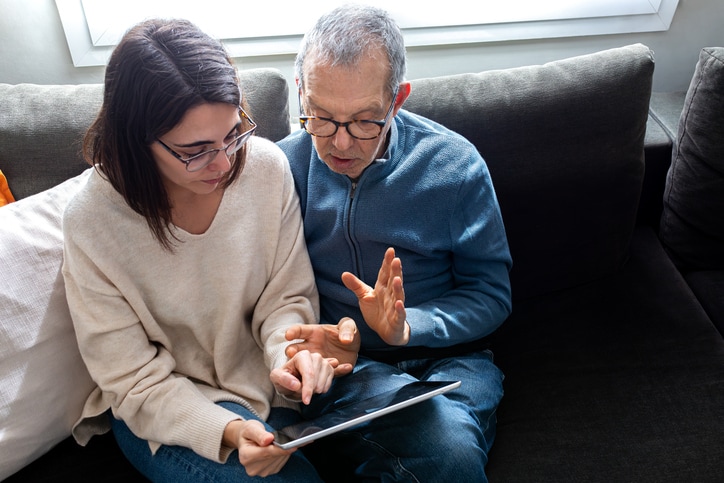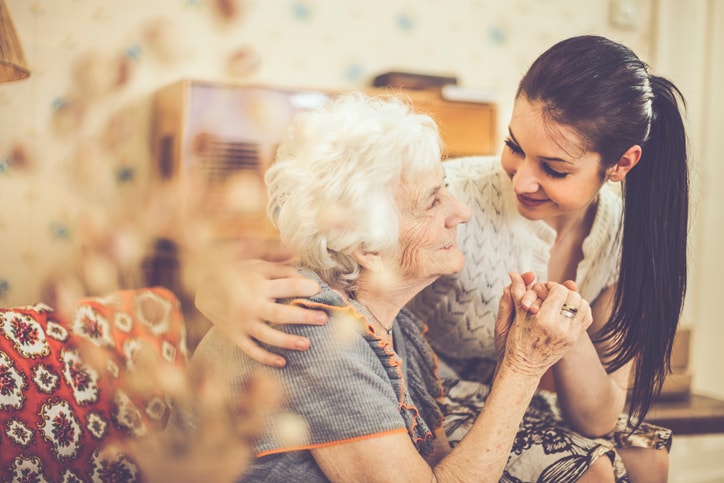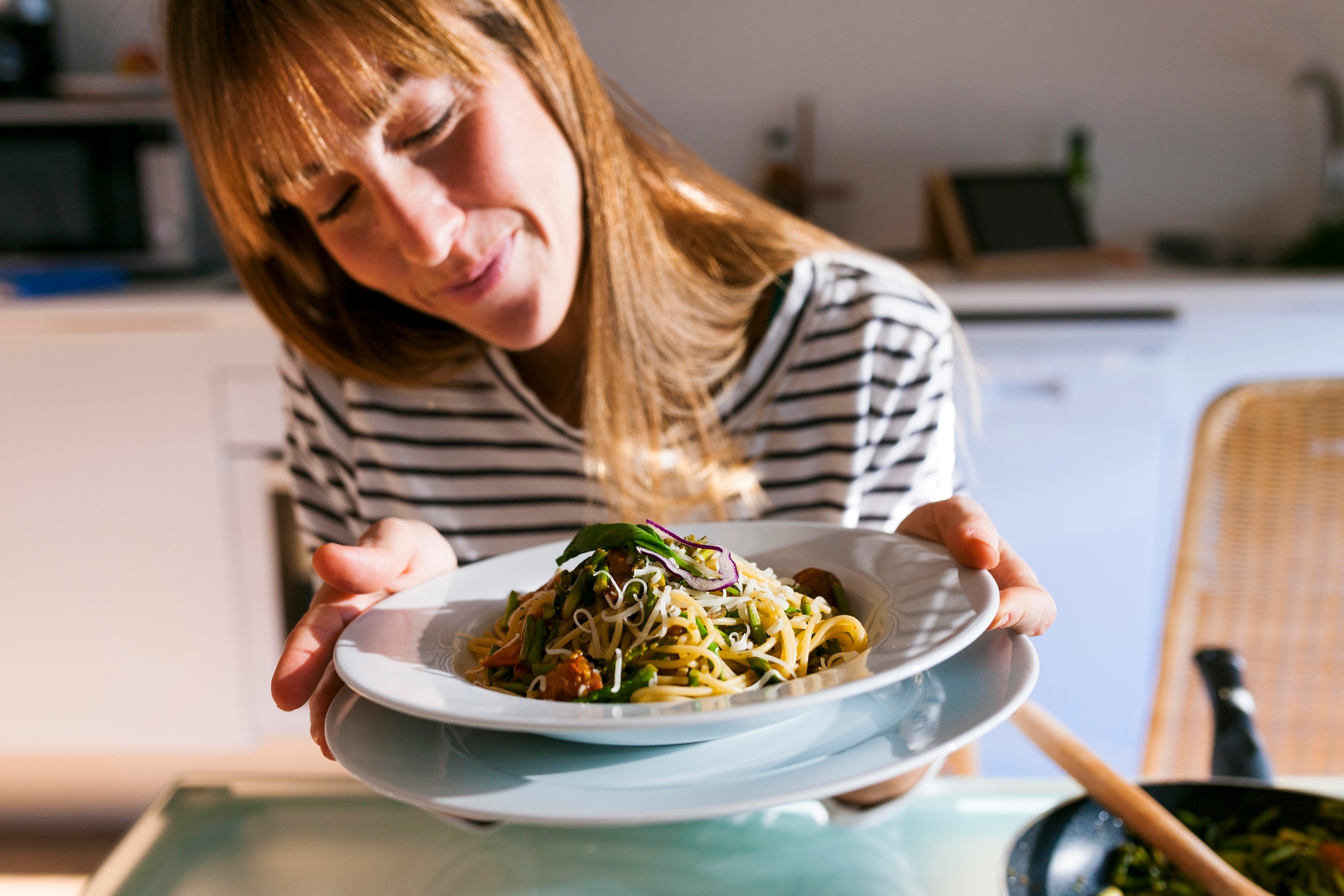By Libby Ryan
It’s been a long 18 months. And if you’ve been working as a caregiver for vulnerable seniors during the pandemic, it might feel like you’ve been working overtime just to stay on top of the latest safety recommendations to keep yourself and your clients safe. Now, there’s the delta variant to consider, and it’s understandable if your anxiety levels are creeping back up.
From travel to skipping masks, safety choices caregivers make can pose a risk to seniors, says Dr. June M. McKoy, associate professor of medicine, Medical Education, and Preventive Medicine at Northwestern University in Evanston, Illinois. And since in most cases, older adults who require care rarely leave their homes, caregivers could be one of their main risks for coming into contact with the coronavirus.
What does that mean for the next stage of the pandemic? Here, experts break down nine big questions about caregiving, safety measures, boundaries and everything else you want to know about in the COVID era.
1. What makes the delta variant different?
“The delta variant is highly contagious,” notes Dr. McKoy. In fact, according to the CDC, it is nearly twice as contagious as previous variants of the coronavirus. That’s extremely worrisome when you start thinking about how quickly that could spread, either in care homes or from household to household for carers who work in more than one place.
2. How can I protect myself against delta?
You’re already likely very familiar with the best tools to protect yourself and the seniors in your care against the delta variant:
- Vaccination.
- Masks.
- Limiting social circles as much as possible.
- Frequent hand-washing and sanitizing.
And these are the same safety measures you should be taking now, says Dr. McKoy.
If you are a caregiver, take extra measures to avoid activities (think: big events like concerts, indoor crowds, etc.) that might expose you to the virus and thus expose seniors in your care to illness, she says. And if you can’t avoid crowds, such as on public transportation, make sure to wear a mask for added protection, says Dr. Nisha Rughwani, an associate professor of geriatrics and palliative care at the Icahn School of Medicine at Mount Sinai Hospital in New York City.
“While the delta variant has caused surges of infections in many places, hospitalizations and deaths among vaccinated individuals have been very rare.”
— JOSHUA G. PETRIE, RESEARCH ASSISTANT PROFESSOR AT THE UNIVERSITY OF MICHIGAN SCHOOL OF PUBLIC HEALTH
3. Are the vaccines making a difference?
The best news right now? Vaccines are working, meaning that if you and the seniors in your care are both vaccinated, your risk from the virus is significantly lower.
“While the delta variant has caused surges of infections in many places, hospitalizations and deaths among vaccinated individuals have been very rare,” explains Joshua G. Petrie, who holds his doctorate in epidemiologic sciences and Masters in Public Health, research assistant professor in the Department of Epidemiology at the University of Michigan School of Public Health in Ann Arbor, Michigan.
According to the CDC, more than 80% of people over age 65 are fully vaccinated. That means three quarters of seniors have a new level of protection from the coronavirus.
4. Can I infect a senior in my care if I’m vaccinated?
Although the vaccine does offer strong protection — and is the best thing we can do to protect ourselves and others, notes Petrie — they’re not 100% protective, and breakthrough cases have occurred. So even if you and the senior in your care are both fully vaccinated, there’s still a risk either of you could get infected.
With the increased contagiousness of the delta variant, the virus could “overwhelm the immune system of even vaccinated older adults, leading to illness,” says Dr. McKoy. Yes, illness might be generally milder, but there are still seniors at high risk because of comorbidities like diabetes, heart disease or other illnesses, she notes.
For this reason, you should feel empowered to confirm the vaccination status of seniors who would be in your care to determine whether you want to take on the increased risk.
5. Should I wear a mask inside?
Right now, the CDC recommends wearing masks:
- Indoors in areas with high transmission of the virus (and right now, 90% of U.S. counties have high enough transmission of the virus to qualify for indoor masking, according to a CDC briefing).
- Outdoors in crowded spaces or in areas with high transmission.
- Around unvaccinated individuals.
Dr. McKoy recommends that all caregivers, regardless of vaccination status, wear masks inside. “Remember, masks are worn to prevent [caregivers] from infecting others,” she says. “For ‘come and go’ caregivers in the community, these masks can protect the older adult from the caregiver.”
6. What about quarantines?
The CDC currently doesn’t require fully vaccinated people to quarantine if they’re exposed to COVID-19 unless they are showing symptoms of the virus. Instead, they say you should get tested a few days after exposure and, crucially, stay away from high-risk people for 14 days.
“Currently, the delta strain is so contagious that one might be infected and not be aware of the exposure since symptoms might not yet have developed,” says Dr. McKoy. “However, during this asymptomatic phase, a caregiver can infect the senior.”
So if you know you’ve been exposed to COVID-19, it may be a good idea to limit contact with seniors for 14 days, if at all possible, suggests Petrie.
7. Are quarantines counted as sick days or paid time off?
In the current stage of the pandemic, some legal protections for workers put into effect during earlier waves of the virus have expired.
“When the Families First Coronavirus Response Act (FFCRA), expired in December 2020, the mandate for employers to provide paid sick leave expired with it. Since then, state and local governments have tried to fill in the gap,” explains John Schall, the CEO of the Caregivers Action Network, which provides support for caregivers across the U.S.
“Some state and local governments have added protection for sick and quarantined workers while others have specific guidelines on how current paid leave rules apply to the pandemic,” he explains.
The Society for Human Resource Management has a list of which states and cities are providing workers with additional protections, where you can check which rules apply to your situation.
Phrases like “we’re here to support each other” and wanting to create a “supportive relationship of honesty” can help to foster open communication about PTO, quarantines and sick leave.
— DR. NISHA RUGHWANI, ASSOCIATE PROFESSOR OF GERIATRICS AND PALLIATIVE CARE
8. How can I set a precedent for safety measures?
If your state doesn’t give you specific protections for paid sick leave or paid time to quarantine, you can discuss safety measures directly with your employer.
Dr. Rughwani suggests emphasizing that taking time off to quarantine keeps everyone safer, you, your family, seniors in your care and their families.
Schall agrees, saying paid time off ensures the health of those we care for but that it’s also in the best interests of the employer to minimize the risk of exposure.
And Dr. Rughwani adds that phrases like “we’re here to support each other” and wanting to create a “supportive relationship of honesty” can help to foster open communication about PTO, quarantines and sick leave.
9. Can we expect any changes around safety protocols to come down the pike?
Right now, experts agree that the best tools to fight the delta variant are the same tools we’ve used to combat other strains of the coronavirus: vaccination, masks, social distancing and quarantines.
But safety guidelines, such as mask requirements, continue “to evolve as we learn more and situations change in the pandemic,” notes Petrie. And that’s a good thing; it means we’re ready to meet the challenge of the next phase of the pandemic and protect the most vulnerable among us.
Libby Ryan is a freelance journalist and editor covering health, culture, and travel.





